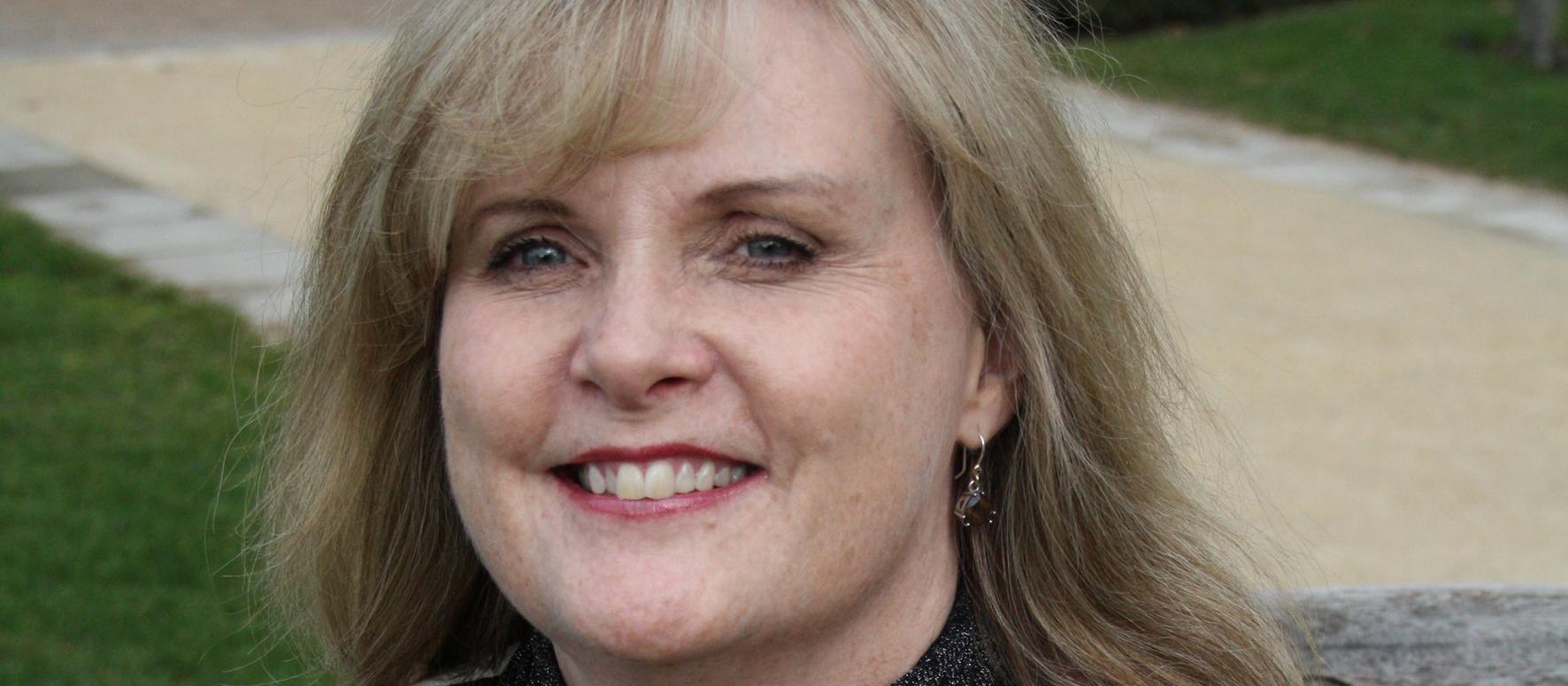Respiratory physician Lutz Beckert considers chronic obstructive pulmonary disease management, including the prevention of COPD, the importance of smoking cessation and pulmonary rehabilitation, and the lifesaving potential of addressing treatable traits. He also discusses the logic of inhaler therapy, moving from single therapy to dual and triple therapy when indicated, as well as other aspects of management
Departing Canterbury integrated health innovator will be missed, say GP leaders
Departing Canterbury integrated health innovator will be missed, say GP leaders

I don’t think many people appreciate the depth and breadth of her influence over the Canterbury health system, and probably to a degree the New Zealand health system as well
Innovative Canterbury health leader Carolyn Gullery will be hard to replace after nearly 30 years of influencing integrated care in the region, say GP leaders.
The resignation by the Canterbury DHB executive director, planning, funding and decision support to take up a new role in the UK in September was announced to staff yesterday.
It comes on top of difficult times for Canterbury DHB with The Press reporting that an emergency meeting is being held today by the DHB which is under pressure to reduce its forecast deficit of nearly $180 million.
Ms Gullery has been way ahead of her health bureaucrat colleagues in “seeing that primary care is a large part of the solution to the health of our population”, says Christchurch GP Angus Chambers.
Dr Chambers, Christchurch PHO chair and fellow PSAAP (PHO services agreement amendment protocol) group member, says Ms Gullery’s work was hampered by the Government’s unwillingness to invest in primary care.
Ms Gullery has been a key component of much of the innovation and integration in Canterbury right back to her days with the Southern Regional Health Authority (RHA) in the early 1990s, says Christchurch GP and University of Otago professor of general practice Les Toop.
“She’s got a deep understanding of how the system works in Canterbury,” says the former chair of Pegasus Health PHO. That includes being instrumental in setting up primary care-based acute demand management service that has now spread nationwide, along with Health Pathways and other innovations.
“She’s not an easy person to replace at all,” Professor Toop says.
“It’s been a very tough 10 years since the earthquakes and she has facilitated primary care, in a sense, taking a load off secondary care in a number of ways through the Canterbury Initiative and other things.”
Christchurch GP Graham McGeoch says Ms Gullery’s resignation was a sad day for the Canterbury health system. It’s also sad for him personally, as she has been his boss in his role as clinical advisor to the DHB’s planning and funding division.
“I don’t think many people appreciate the depth and breadth of her influence over the Canterbury health system, and probably to a degree the New Zealand health system as well,” says Dr McGeoch.
He says in 1993, during her time at the Southern RHA, she negotiated the first budget-holding contract with the then independent practitioner association Pegasus.
She later moved to Pegasus, where she helped set up the acute demand programme in 1999-2000 and was then founding chief executive for Partnership Health PHO. In 2007, she joined the DHB as planning and funding general manager and started work on Canterbury’s integrated health agenda, says Dr McGeoch.
“She’s been extremely good at setting the vision and direction, but then has let clinicians and others get on and implement it.”
Dr McGeoch says this has resulted in Canterbury general practice over the past decade being funded to deliver a range of devolved hospital services including spirometry, sleep studies, as well as acute care demand.
He believes Canterbury GPs and general practice owners have benefited from her work and she will be missed.
“She’s grown a number of good people over the years but we’re still going to miss her.”
In an email to staff yesterday DHB chief executive David Meates acknowledged Ms Gullery’s “tremendous contribution to both the Canterbury and West Coast health systems”.
He wished her every success in her new role at health information technology provider Lightfoot Solutions, where she will be supporting a number of NHS systems in Wales and England.
“Carolyn has played a significant part in reshaping the way healthcare is delivered in both Canterbury and the West Coast,” says Mr Meates.
He says she also set up the first pharmacy services budget-holding contracts, changed how patients received medication to repeat dispensing, saving the country $60 million in the first year, and led the development of key policies and strategies that affected pharmaceuticals, pharmacy and general practice, including the development of BPAC and the PharmHouse.





![Barbara Fountain, editor of New Zealand Doctor Rata Aotearoa, and Paul Hutchison, GP and senior medical clinician at Tāmaki Health [Image: Simon Maude]](/sites/default/files/styles/thumbnail_cropped_100/public/2025-03/Barbara%20Fountain%2C%20editor%20of%20New%20Zealand%20Doctor%20Rata%20Aotearoa%2C%20and%20Paul%20Hutchison%2C%20GP%20and%20senior%20medical%20clinician%20at%20T%C4%81maki%20Health%20CR%20Simon%20Maude.jpg?itok=-HbQ1EYA)
![Lori Peters, NP and advanced health improvement practitioner at Mahitahi Hauora, and Jasper Nacilla, NP at The Terrace Medical Centre in Wellington [Image: Simon Maude]](/sites/default/files/styles/thumbnail_cropped_100/public/2025-03/2.%20Lori%20Peters%2C%20NP%20and%20advanced%20HIP%20at%20Mahitahi%20Hauora%2C%20and%20Jasper%20Nacilla%2C%20NP%20at%20The%20Terrace%20Medical%20Centre%20in%20Wellington%20CR%20Simon%20Maude.jpg?itok=sUfbsSF1)
![Ministry of Social Development health and disability coordinator Liz Williams, regional health advisors Mary Mojel and Larah Takarangi, and health and disability coordinators Rebecca Staunton and Myint Than Htut [Image: Simon Maude]](/sites/default/files/styles/thumbnail_cropped_100/public/2025-03/3.%20Ministry%20of%20Social%20Development%27s%20Liz%20Williams%2C%20Mary%20Mojel%2C%20Larah%20Takarangi%2C%20Rebecca%20Staunton%20and%20Myint%20Than%20Htut%20CR%20Simon%20Maude.jpg?itok=9ceOujzC)
![Locum GP Helen Fisher, with Te Kuiti Medical Centre NP Bridget Woodney [Image: Simon Maude]](/sites/default/files/styles/thumbnail_cropped_100/public/2025-03/4.%20Locum%20GP%20Helen%20Fisher%2C%20with%20Te%20Kuiti%20Medical%20Centre%20NP%20Bridget%20Woodney%20CR%20Simon%20Maude.jpg?itok=TJeODetm)
![Ruby Faulkner, GPEP2, with David Small, GPEP3 from The Doctors Greenmeadows in Napier [Image: Simon Maude]](/sites/default/files/styles/thumbnail_cropped_100/public/2025-03/5.%20Ruby%20Faulkner%2C%20GPEP2%2C%20with%20David%20Small%2C%20GPEP3%20from%20The%20Doctors%20Greenmeadows%20in%20Napier%20CR%20Simon%20Maude.jpg?itok=B0u4wsIs)
![Rochelle Langton and Libby Thomas, marketing advisors at the Medical Protection Society [Image: Simon Maude]](/sites/default/files/styles/thumbnail_cropped_100/public/2025-03/6.%20Rochelle%20Langton%20and%20Libby%20Thomas%2C%20marketing%20advisors%20at%20the%20Medical%20Protection%20Society%20CR%20Simon%20Maude.jpg?itok=r52_Cf74)
![Specialist GP Lucy Gibberd, medical advisor at MPS, and Zara Bolam, urgent-care specialist at The Nest Health Centre in Inglewood [Image: Simon Maude]](/sites/default/files/styles/thumbnail_cropped_100/public/2025-03/7.%20Specialist%20GP%20Lucy%20Gibberd%2C%20medical%20advisor%20at%20MPS%2C%20and%20Zara%20Bolam%2C%20urgent-care%20specialist%20at%20The%20Nest%20Health%20Centre%20in%20Inglewood%20CR%20Simon%20Maude.jpg?itok=z8eVoBU3)
![Olivia Blackmore and Trudee Sharp, NPs at Gore Health Centre, and Gaylene Hastie, NP at Queenstown Medical Centre [Image: Simon Maude]](/sites/default/files/styles/thumbnail_cropped_100/public/2025-03/8.%20Olivia%20Blackmore%20and%20Trudee%20Sharp%2C%20NPs%20at%20Gore%20Health%20Centre%2C%20and%20Gaylene%20Hastie%2C%20NP%20at%20Queenstown%20Medical%20Centre%20CR%20Simon%20Maude.jpg?itok=Z6u9d0XH)
![Mary Toloa, specialist GP at Porirua and Union Community Health Service in Wellington, Mara Coler, clinical pharmacist at Tū Ora Compass Health, and Bhavna Mistry, specialist GP at Porirua and Union Community Health Service [Image: Simon Maude]](/sites/default/files/styles/thumbnail_cropped_100/public/2025-03/9.%20Mary%20Toloa%2C%20Porirua%20and%20Union%20Community%20Health%20Service%20in%20Wellington%2C%20Mara%20Coler%2C%20T%C5%AB%20Ora%20Compass%20Health%2C%20and%20Bhavna%20Mistry%2C%20PUCHS%20CR%20Simon%20Maude.jpg?itok=kpChr0cc)